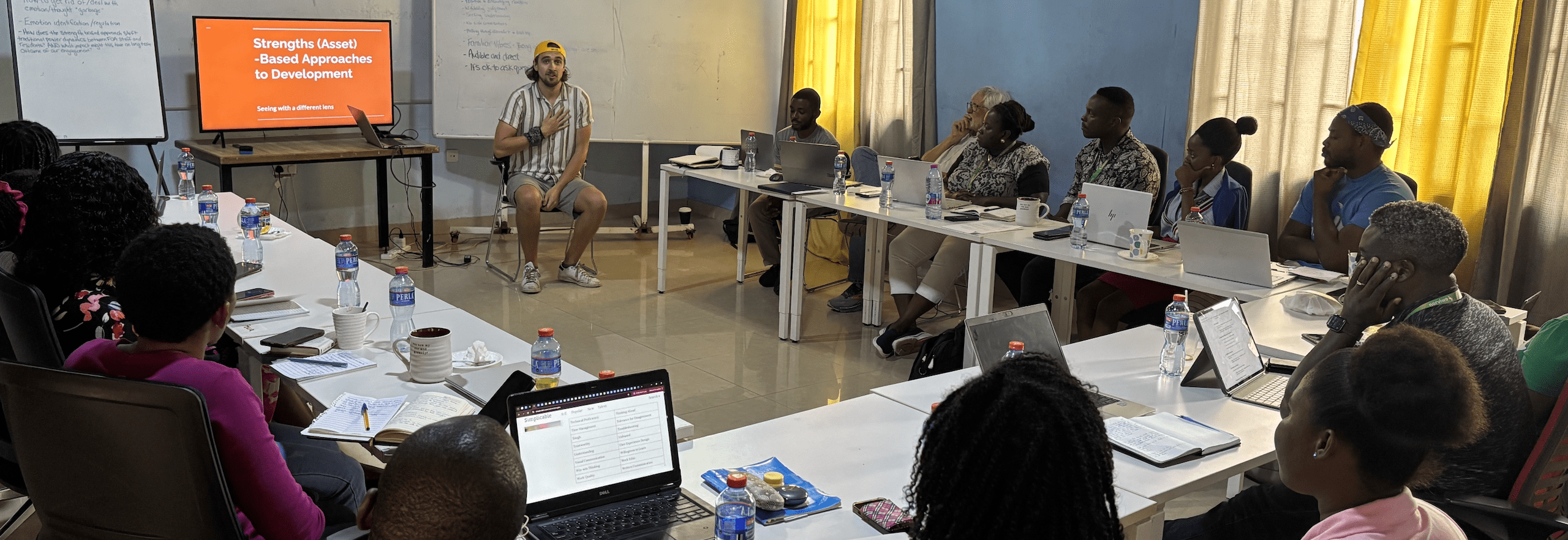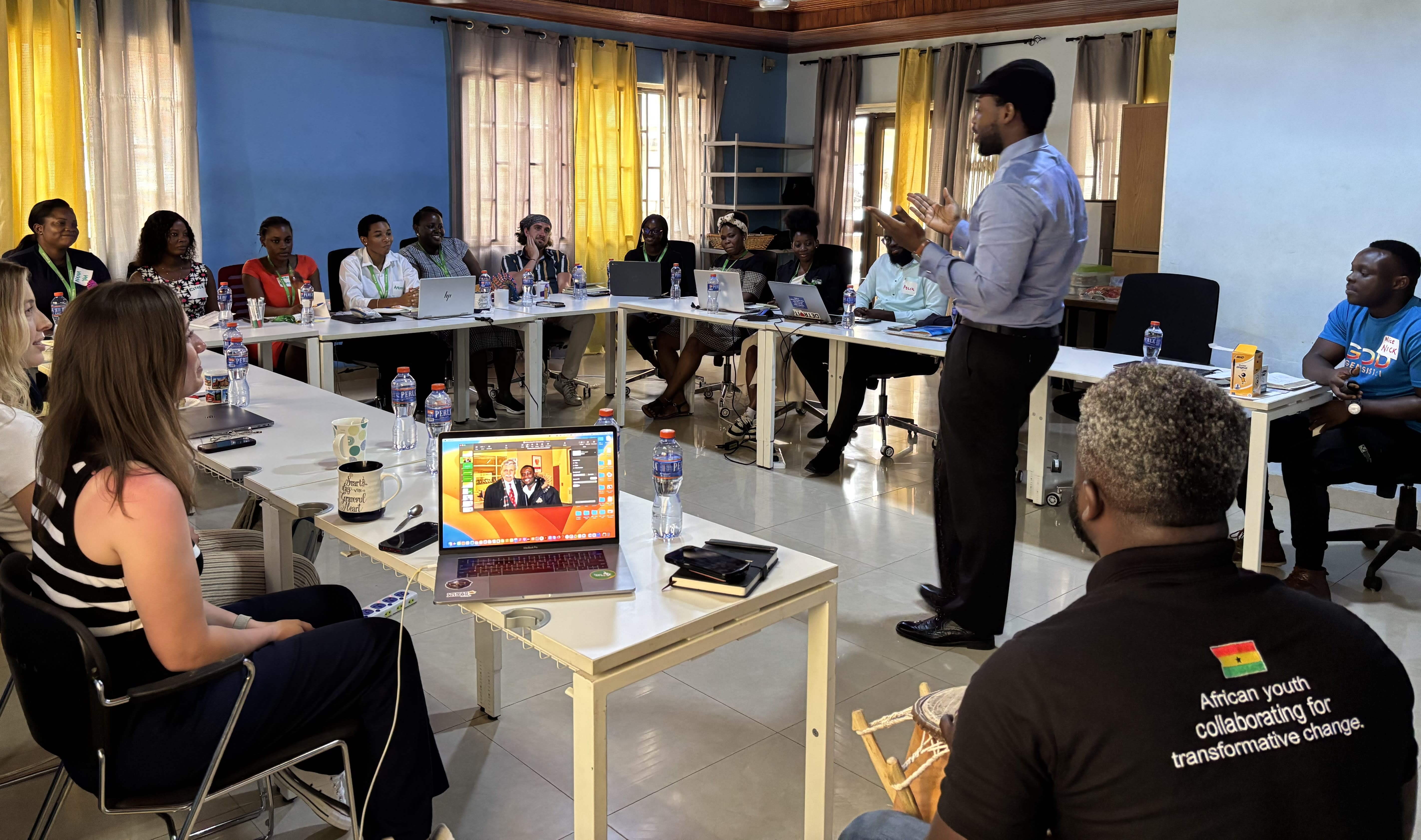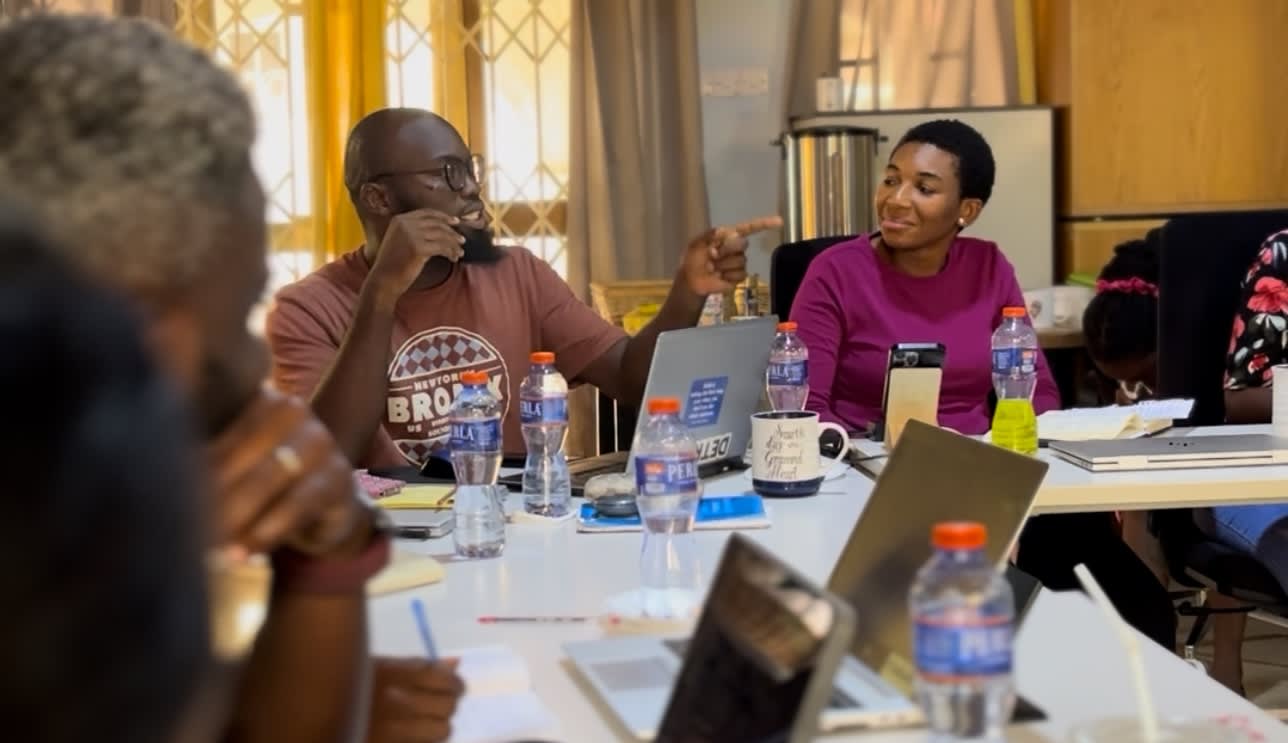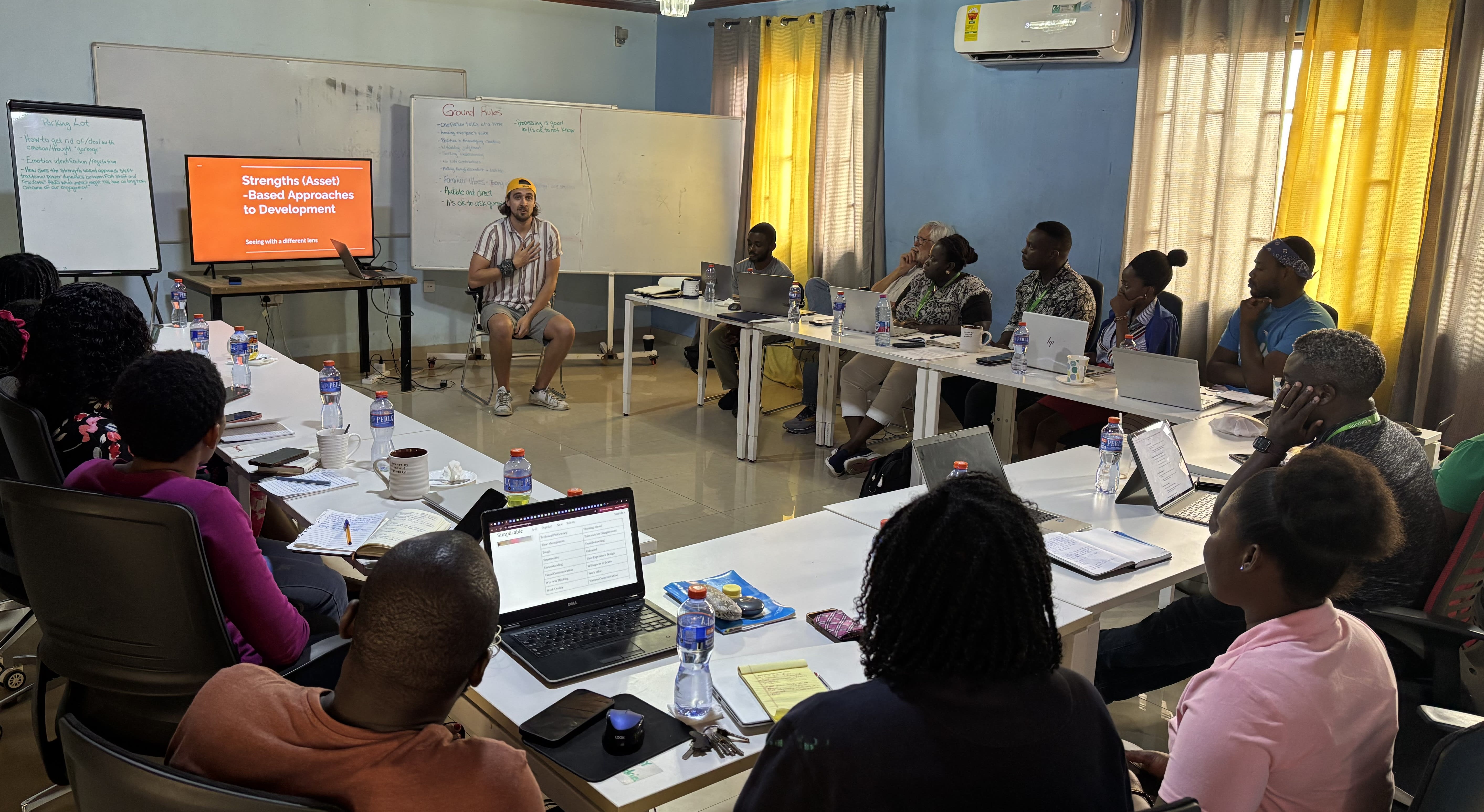
Our 10-year journey has taught us that real impact begins with equipping our team to see through the lens of trauma and serve with deeper compassion.

2025 is a landmark year for Future of Africa—a decade of walking side by side with street youth in Accra, bringing hope where there was despair, and creating real opportunities for a brighter future. What began with simple acts of sharing meals on Saturday nights and tending to first-aid needs—has grown into a movement. Today, we have a vibrant community centre where boys and girls can transition off the streets, heal, and begin to thrive.
In our commitment to continuously deepen our impact, our team of staff and volunteers dedicated two weeks to reflection, learning, and growth. Through a series of transformative workshops led by experienced social workers from Canada, we explored new ways to truly understand the journeys of the youth we serve. We learned how to see through the lens of trauma-informed care, equipping ourselves to serve with even greater empathy.
At FOA, we believe in pausing to reflect—celebrating victories, learning from challenges, and discerning the path forward.
Building a Culture That Reflects Who We Are
We began by reflecting on our culture—who we are, how we work, and how we choose to engage the youth we serve. Together, we recognized that FOA’s culture is defined by relationships. Every interaction—whether with a volunteer, staff member, or street youth—is an opportunity to truly know one another, to care deeply, and to help each other grow.
At the heart of FOA is a simple but powerful belief: every human life holds equal value and extraordinary potential. Because of this, we never give up on anyone. We commit to walk alongside each youth until they are able to thrive. This way of working is counter-cultural in Ghana, where street children are often overlooked or dismissed—but we believe it is precisely this approach that will empower African youth to rise together and create transformative change across the continent.
As a team, we also confronted the realities of our own conditioning—recognizing the things society has taught us that we must now unlearn. We made a collective commitment to be intentional: to build and protect a culture that reflects our deepest values and the future we want to see.

-
One of the best moments was hearing the youth reflect on their strengths and dreams. You could see their confidence grow as they spoke

Learning to Understand the Youth Through New Lenses
One of the most powerful moments of our training was diving deep into the reality of trauma—and how life on the streets shapes a young person’s brain, mindset, emotions, and behavior. Many of us had never paused to consider what it truly means for a child to survive alone, to be abused, abandoned, or simply misunderstood. Understanding the profound impact on their brain development has opened our eyes. It has also strengthened our resolve to create personalized strategies that meet each youth where they are—helping them heal, grow, and ultimately reach their full potential.
We also embraced the strength-based approach to youth development, which shifts our focus from fixing weaknesses to uncovering strengths. Every young person we serve carries hidden talents, abilities, and possibilities. By designing our programs to help them discover and lean into these strengths, we are not only building skills—we are giving them confidence, hope, and the courage to flourish.
Responding with a different mindset
One of our greatest challenges over the past six years has been youth returning to the streets after spending time in our care. For our staff, it has often been heartbreaking—moments that stirred feelings of disappointment and, at times, the temptation to pull back emotionally. Seeing a young person we’ve walked with back on the streets can feel like a setback.
Through our recent workshop, however, we began learning to respond differently—to ask better questions, to seek understanding, and to meet these moments with compassion rather than frustration. We didn’t expect to apply these lessons so soon, but during the training week, one of our youth ran away. He had been with us for over a year but felt the pull of the streets again, driven by a sense of responsibility to support his mother, who had just given birth and was struggling on her own. Without telling anyone, he left—this being the eighth time he had run away.
When he returned a few days later, we chose a new approach. Armed with what we had learned about trauma, we met him with patience and care. We listened deeply, had honest conversations, and reminded him of how far he had already come. We helped him see that even if he couldn’t yet provide financially, he still carried immense value and could show up for his family in other meaningful ways. Today, he is back in the program—more grounded, more confident, and more hopeful. His story is a living reminder of why this work matters and why our approach—rooted in patience, understanding, and unwavering commitment—changes lives.